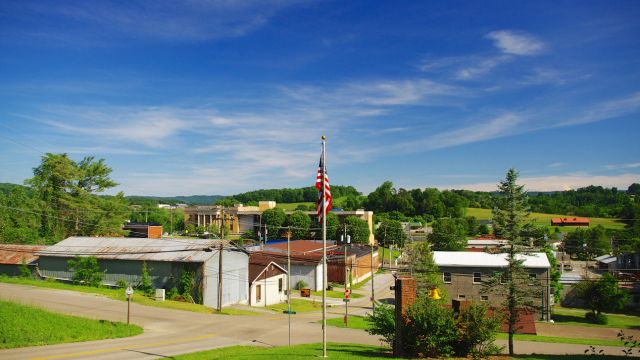Virginia boasts a rich history, diverse culture, and breathtaking landscapes; however, it grapples with a distinct socioeconomic divide. The most recent U.S. Census Bureau data reveals a median household income of $80,615 in Virginia, but numerous towns, such as Jonesville, exhibit significantly lower incomes. Among the 328 towns with available data, Jonesville stands out as the poorest. In this blog, we delve into the causes and repercussions of Jonesville’s poverty and explore potential avenues for improvement.
The Reasons
Jonesville’s impoverished status is multifaceted, with several contributing factors:
- Location and Isolation: Situated in Lee County, southwest Virginia, Jonesville faces remoteness and limited access to transportation, communication, and services. Its distance from major economic hubs exacerbates the challenge.
- Economic Decline and Unemployment: Historically reliant on coal mining, Jonesville witnessed a decline due to environmental regulations, competition, and automation. The unemployment rate in Jonesville is 9.8%, surpassing the state average of 4.6%.
- Poverty and Inequality: Jonesville contends with high poverty and inequality, boasting a 38.7% poverty rate compared to the state average of 9.9%. The median household income in Jonesville, at $23,750, is less than a third of the state median.
The Consequences
Jonesville’s elevated poverty levels have severe consequences on residents, the community, and the state:
- Physical and Mental Health: Poverty contributes to various health issues, impacting life expectancy, which is 72.8 years in Jonesville, compared to the state average of 79.5 years.
- Social and Economic Well-being: Poverty affects education, employment, income, and community safety, fostering crime and insecurity.
- Justice and Human Rights: Poverty challenges human rights, leading to marginalization and frustration, potentially undermining justice and democracy.
The Solutions
Addressing Jonesville’s poverty requires strategic and sustained efforts:
- Investment and Development: Supporting and diversifying the local economy through agriculture, tourism, and renewable energy, alongside infrastructure improvements, can create jobs and opportunities.
- Education and Training: Enhancing residents’ skills and employability involves providing quality education, vocational training, and career guidance.
- Protection and Support: Ensuring residents’ health, safety, and well-being through accessible healthcare, social security, and community strengthening is crucial.
The Conclusion
Jonesville’s poverty is a complex issue demanding urgent action. Beyond statistics, it involves stories and lives, affecting not just residents but the entire state and society. Tackling this challenge presents an opportunity to build a more prosperous, inclusive, and sustainable town. Through collective efforts, courage, compassion, and commitment, Jonesville can overcome poverty and strive for a better future.

